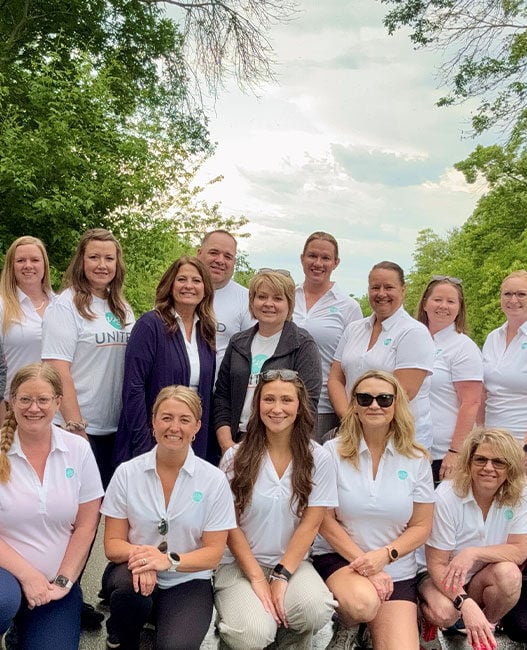The results show that inequality needs to be addressed and is important to achieving the equal treatment of all, while also revealing that women around the world remain underrepresented in the industry and continue to experience various forms of sexism and discrimination.
Farnell, in partnership with its Community element14.com, launched the second annual Global Women in Engineering survey in June 2022 to help shed light on women’s experiences, career paths, wider challenges and opportunities in the engineering/electronics industry.
The global survey is designed to gain direct insight from all members of the industry to understand current barriers to achieving equality and how to diminish discriminatory practices in the workforce while presenting a vision for the future.
New questions covering discrimination, sexism and equality were added into the 2022 survey as these critical issues were noted as key areas in the 2021 survey analysis.
Dianne Kibbey, Global Head of Community and Social-Media for element14 says: “The results of this year’s Global Women in Engineering survey were a strong indicator that the positive trends for achieving the equal treatment of all genders are continuing. Differences in opinion were expressed on the challenges women face in our industry, which could help employers to understand what is working well for women in the workplace and what could be improved. Overall, we hope these inclusive, real-world insights will help organisations around the world to deploy new policies to create better working environments for all.”
Key insights
Key insights from the Global Women in Engineering Survey included:
Seventy percent (70%) of survey respondents said they would intervene when seeing discrimination. However, the seniority of the person exhibiting discriminating behaviour was cited as the biggest obstacle to intervention. A small percentage believed they would not intervene because discrimination or sexism is part of their company’s culture.
Women expressed the belief that they were perceived to be less technically capable than men, but this view was not supported by male respondents. Men cited that woman “missing out on career development opportunities” was an issue.
It is evident that sexism and discrimination are still occurring, but the situation is improving. Twenty-five percent (25%) of survey respondents said that they have never experienced sexism in the electronics/engineering industry.
Other discrimination challenges cited some women as obstructing other women in their career progression, although the barrier was not as great as that presented by men. Self-promotion by women was highlighted as a key issue in this year’s survey, both in reference to being discriminated against for not positively communicating their achievements versus the perception of being ‘aggressive’ when doing so.
Genders think similarly about how to address work/life balance, however pay is one area where there is a significant difference in opinion. Men are less likely to say they have seen pay differentials, with 12% of men compared to more than 40% of female respondents.
All genders shared similar views about the enforcement of policies. However, there was a combined decrease in enthusiasm for inclusion and diversity initiatives from 40% in 2021 to approximately 25% in 2022.
More than half of the survey respondents said providing mentorship and development opportunities to women was important. Mentors are seen as the key to ensuring recognition by being advocates. More than three-quarters of women felt mentorship helped them in their careers.
Success stories
The survey uncovered many anecdotal success stories of women who are already achieving great things in the electronics/engineering industry, including:
One woman cited a major achievement of securing a 233% increase in new business from a client. She commented: “I took on Google as a customer when I was in Inside Sales. Through hard work, high level collaboration and intense focus on value-added services … we grew their account from less than 30K to 1 million over several years. Visiting their campus and connecting with those engineers in person during this timeframe was one of the most rewarding experiences I’ve had.”
Another woman commented: “Twenty-seven years in engineering. I’m proud of that.”
“BOSCH accepted my Production Part Approval Process (PPAP) when I was an intern in an automotive company.”
There was an overwhelming response from all genders encouraging women to be more confident, trust in their abilities and take on the challenge of working in engineering.
Some of the top drivers leading women to enjoy a career in engineering included the ability to work on diverse projects (25%), opportunities for getting a preview of what’s coming next in technology and seeing that come to life (16%), and career development (10%). The option for women to have flexibility and work/life balance (21%) was much higher than in the 2021 results.
More to be done
The 2022 survey matches the trends revealed in the 2021 survey, highlighting the positive steps forward the industry has made, however, there is more to be done to eliminate sexism and ensure fairness for all. Some real-world examples of sexism and discrimination shared as part of the survey included:
“I was in a role where I was the only female and a top performer, yet I was being paid 20% lower than the lowest paid male on the team.”
“I was told by management before my first big conference to ensure I shop in the women’s department for clothing for the event and to ensure I dressed more feminine.”
“I have been told to ‘dress sexy’ when pitching presentations for new business to executive directors.”
“Being told by a mentor/professor on my course that being female I would not make it in engineering as I would have to be a lot better than the men.”
“Director-level opportunities being passed directly to a male colleague without the role being advertised.”
Process
Farnell’s eight-week global survey was open to all genders working in the electronics/engineering industry and launched on International Women in Engineering Day (June 23). Most this year’s survey respondents (75%) were from Europe and North America with further submissions received from Asia Pacific, Central and South America, China, Middle East and Africa. There was an even distribution of age, particularly from 25 to 54-years (totalling 74%), and 57% of respondents had more than 10 years of experience in engineering.















